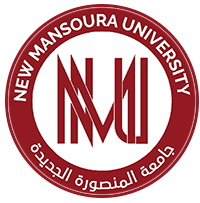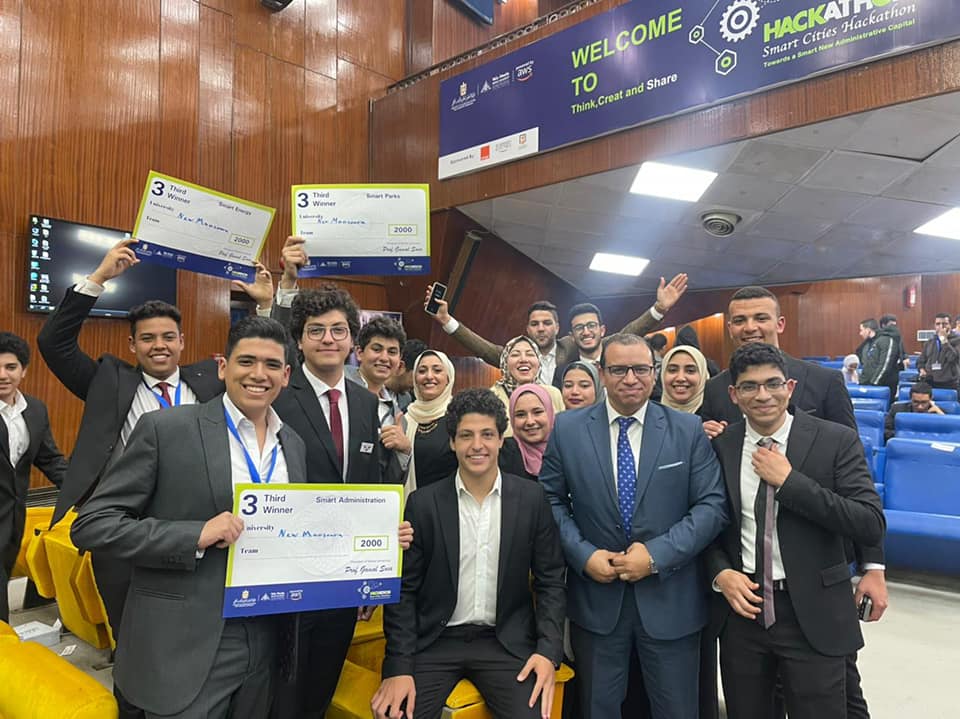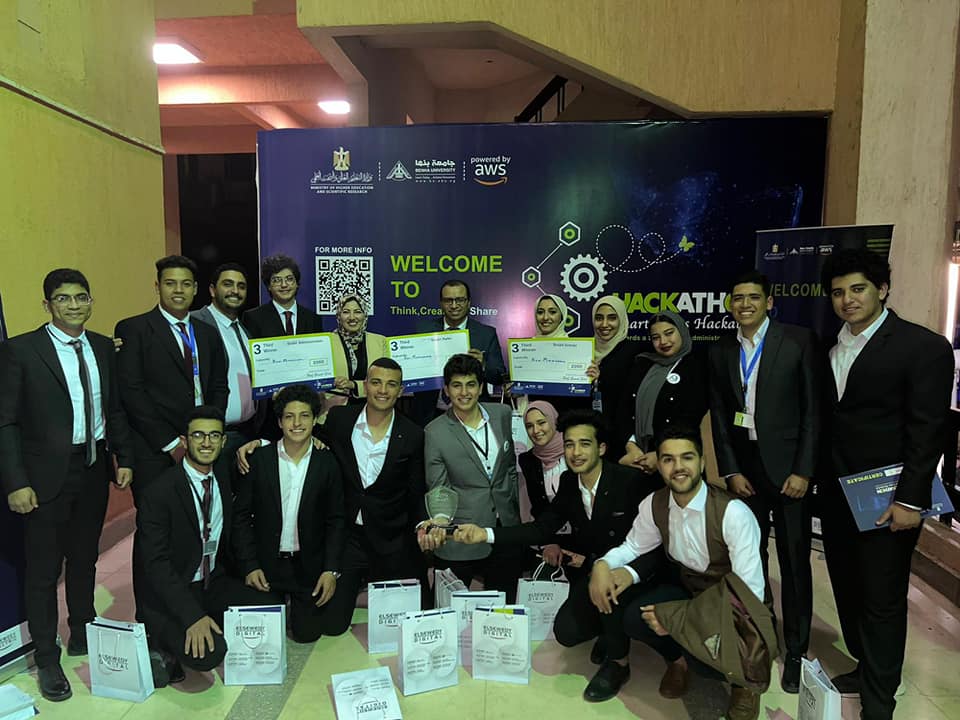New Mansoura Architecture wins awards in smart cities hackathon competitions
New Mansoura University, represented by the Faculty of Engineering, won four places in the first hackathon for smart cities under the supervision of the Ministry of Higher Education, which was organized by Benha University in the period from 23 to 26 March, in cooperation between the Ministry of Higher Education and Scientific Research and Amazon Web Service, El Sewedy.
The first three prizes were for projects submitted by students in the middle year of the College of Engineering, and related to ideas and models for their graduation projects under the title: Your specialty and artificial intelligence. This is a precedent that did not happen in the history of engineering colleges, that the vision of the graduation project was presented to students from the first year of their enrollment in their college. This is to In addition to collecting an additional award for the best innovative idea presented at the hackathon level from among 40 ideas selected for the final qualifiers presented by the Amazon Foundation, worth $500.
The first project is entitled: “Sensual Interactive Pavilion.” The idea of the project is to create a “pavilion” located in an open area designated for people with special needs. It targets the visually impaired (blind), the hearing impaired, and those with mobility disabilities. When a person enters the pavilion, he is recognized. The person's temperature is measured, and each of them is directed to the appropriate seat for him. When a blind person enters, the texture of the floor changes through the material used for the floor, making it easier for him to reach his appropriate place. However, if the person is deaf, the floor creates a lighted path to the person's place through a sensor installed in the floor, and for people with disabilities The wheelchair has a sensor attached to the chair when the person enters the pavilion, and this sensor follows a black-lit path directed to the appropriate place for him. As for energy saving, there is a solar panel on the pavilion that absorbs solar energy and converts it into light. The students Adham Ahmad Al-Jaridli, its narrator Rajab Ramadan Al-Sayyid, Amal Ayman Al-Tantawi, and Taher Abu Amasha won.
The second project is entitled: “Anti Fire Drone.” The idea of the project is based on developing a way to save people from dangerous fire situations by creating an anti-fire drone that has an artificial intelligence system and some sensors to monitor humans in the burning building, and is connected to With a ground station that can be controlled remotely if necessary, and it addresses the problems of fires in skyscrapers and smart cities and the problem of suffocation during fires by carrying an oxygen mask and giving it to the injured person. It can also intervene in narrow areas and save the situation while the firefighters are unable to intervene. It addresses the problem of the great risks that firefighters bear to rescue those injured from fires, and it is able to reach the scene of the fire before the firefighters arrive while they are exposed to traffic congestion, and carries a ball equipped with a chemical that can extinguish the fire faster than the traditional method, and the students in charge of the project are: Amr Khaled, Youssef Abdel Latif, Ezzedine Muhammad Amin Abu Al Qasim, Ali Abdel Hakim Ibrahim Saqr, Omar Nasser Ibrahim Abdel Aziz, Omar Adel Ahmed Shatat
The third project is entitled: “Generating energy from cosmic rays.” The idea is based on generating energy from cosmic rays, as there will be a satellite with solar panels that will receive cosmic rays from the sun and other sources from all over the universe, and then send them to the receiving station on Earth by means of transportation. Energy using microwave technology. This method will solve energy problems on Earth, such as: environmental pollution from non-renewable energy, and the inefficiency of renewable energy sources on Earth. The idea will allow us to generate infinite and clean energy and use it on Earth, and will make us break the barriers of lack of energy that It hinders us from using technology to its full capacity, and the students responsible for the project are: Abdel-Rahman Ahmed Abdel-Hadi Shaheen, Abdel-Rahman Al-Saeed Naseem Yaqoub, Abdel-Rahman Ihab Awad Saleh, Abdel-Rahman Mahmoud Atta Abdallah, Abdel-Fattah Ahmed Abdel-Fattah Mohamed.







